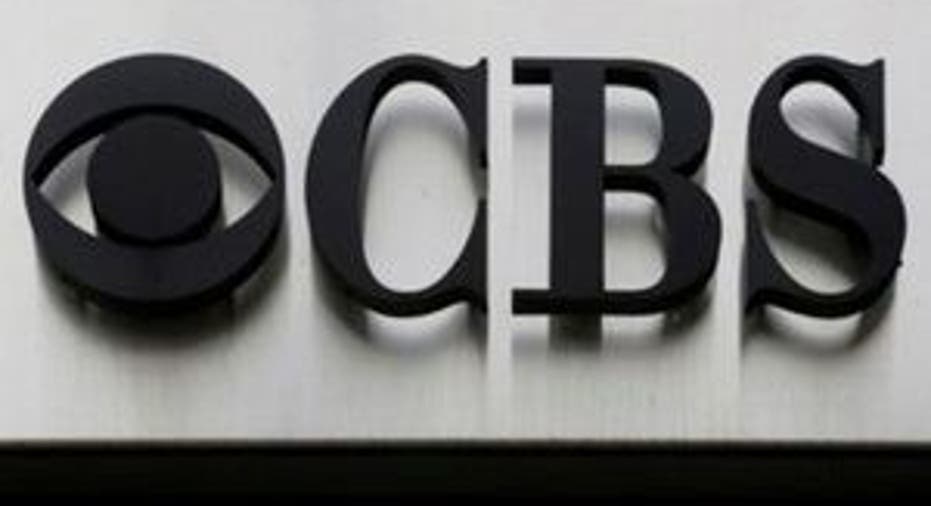CBS, Viacom reunion could lift both after media upheaval

LOS ANGELES/NEW YORK – Eleven years ago, media mogul Sumner Redstone declared "the age of the conglomerate is over" as he prepared to split old-school broadcaster CBS from the fast-growing Viacom Inc cable networks and the Paramount film studio.
Now, the Redstone family's National Amusements, the controlling shareholder of Viacom and CBS Corp , wants the companies to consider stitching the pieces back together. News of a possible reunion, first reported by Reuters, sent shares of both companies higher on Wednesday.
In the intervening decade, options available to viewers have exploded. Digital streaming expanded video beyond the living room, making it possible to watch TV shows and movies virtually anywhere on phones and tablets. Customers started ditching cable packages with hundreds of channels. And YouTube hooked younger viewers with short videos by self-made stars.
Those drastic shifts now make a better case for reuniting the companies, an argument that National Amusements pitched to the boards of both companies in a letter on Thursday.
A merger "would allow the combined company to respond even more aggressively and effectively to the challenges of the changing entertainment and media landscape," the letter read, without going into further detail.
Spokespeople for CBS and Viacom had no comment on the matter on Thursday beyond earlier statements acknowledging receipt of the letter.
Conventional wisdom has held a re-merger would be more beneficial for struggling Viacom. But the combination could help both companies better compete with a massive increase in online programming that has shaken traditional business models, and to secure better terms from bigger-than-ever pay TV operators that remain the dominant distributors of programming, Wall Street investors and analysts said.
"Content companies are getting squeezed from both sides," said Salvatore Muoio, whose investment firm is a top owner of voting shares of both Viacom and CBS. "There have been big mergers on the distribution side, so they are dealing with behemoths in negotiations, while at the same time viewers are cutting the cord because they don't want to pay for cable anymore."
The distributor tie-ups - such as Charter Communications Inc's purchase of Time Warner Cable and Bright House Networks, and AT&T Inc's acquisition of DIRECTV - provide those companies with a stronger hand when hammering out deals to pay for programming from producers like CBS and Viacom.
PROS AND CONS
A CBS-Viacom merger would have to be cheap enough for CBS shareholders but not at too much of a discount for Viacom investors, Muoio said.
Analysts also said there are valid arguments that a combination may not be a good option. One major question is whether CBS Chief Executive Leslie Moonves wants to plunge into pulling Viacom's channels out of a ratings slump.
"It is unclear if Mr. Moonves would undertake such a turnaround project and spread his time across a bigger
portfolio of assets when he is in a relatively strong position competitively with one major asset," Barclays analyst Kannan Venkateshwar said in a research note.
When Redstone separated his media empire, many investors viewed CBS as a slow mover catering to an older audience, compared to the young, scrappy Viacom with hot networks including Nickelodeon and MTV. Viacom appealed to growth investors and CBS to value investors.
But it was CBS that turned out to be the Redstone company that thrived. Its shares have handily outperformed Viacom's over the past five years, more than doubling in value while Viacom shares are trading slightly lower.
Moonves, regarded as one of the best programmers in Hollywood, could help revitalize Viacom's networks, Wedbush Securities analyst James Dix said.
For CBS, joining with Viacom could provide it with new content for the CBS All Access streaming service, the company's play for younger, cord-cutting consumers, said Edward Jones analyst Robin Diedrich. CBS could tap Paramount's film library, which includes the "Mission: Impossible" franchise, as well as kids' shows such as "SpongeBob SquarePants" from Nickelodeon.
CONGLOMERATES REBORN
When the companies split, it was a time of dismantling among media giants built over several decades that had become unwieldy. That was the background for Redstone's declaration that conglomerates were dead at the 2005 Allen & Co media conference in Sun Valley, Idaho.
Now that distributors like Charter and AT&T have gone through their wave of consolidation, reuniting Viacom with CBS, which also owns Showtime and the CBS Sports Network, could give the combined company more leverage when it negotiates the monthly fees they earn from those and other pay TV operators, analysts said.
The two companies' channels deliver 23 percent of total viewers but are paid only 14 percent of affiliate fees, according to MoffettNathanson analyst Michael Nathanson. "CBS and Viacom together should get closer to their fair share," he said in a research note.
There is no guarantee the companies' boards will support a combination. Moonves, speaking earlier this month at a Bank of America Merrill Lynch investor conference, indicated he is not warm to the idea.
"We are never going to do something that is bad for CBS shareholders," he said when asked about a potential tie-up.
(Reporting by Lisa Richwine in Los Angeles and Jessica Toonkel in New York; Editing by Anna Driver, Eric Effron and Bill Rigby)



















